

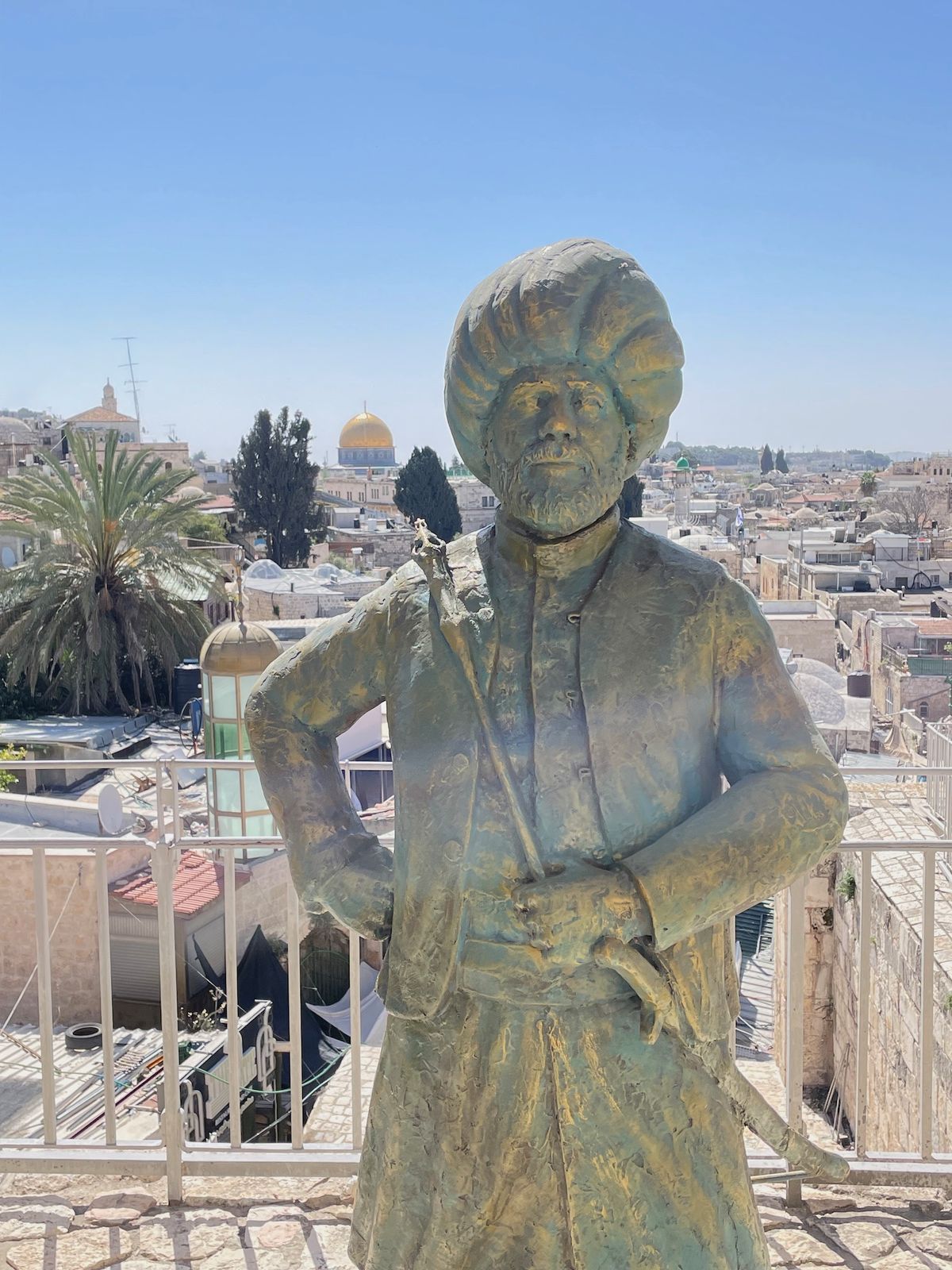
It’s the place where Europe, Asia and Africa meet. But it might be more accurate to describe Israel and its neighbours as lying at the intersection of heaven and hell.
The size of New Jersey, Israel has a population of just 10 million. Its capital Jerusalem is integral to the teachings of the world’s three major monotheistic faiths – Christianity, Judaism and Islam. As a result, it’s the most contentious and sensitive place on the planet.
TravelPulse Canada last visited Israel in February, 2023, at a time when things were relatively calm and tourism was on a post-COVID path toward record levels. The expectation for 2023 was 3.9 million visitors, not far off 2019’s record year of 4.5 million.
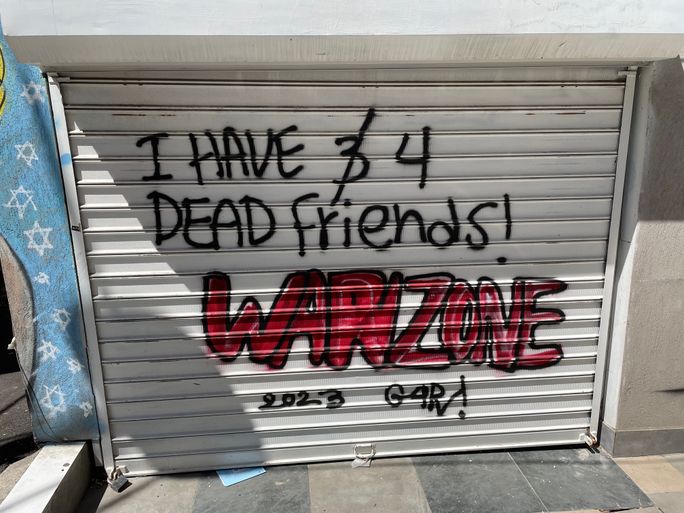
Tel Aviv’s street art changes rapidly as Israel’s situation evolves. (Photo Credit: Bruce Parkinson)
Then came October 7, when a savage surprise attack by Hamas militants killed more than 1,200 Israeli civilians and saw hundreds of others – from the very young to the very old – taken hostage. Israel vowed to destroy Hamas in retribution, and the resulting war, now six months old, has caused the deaths of thousands of civilians in Gaza, polarized world opinion and brought tourism to a virtual halt.
Following the onset of the war, the number of tourist entries to Israel plunged, with just 180,000 arriving in the last quarter of 2023, compared to an expectation of about 900,000.
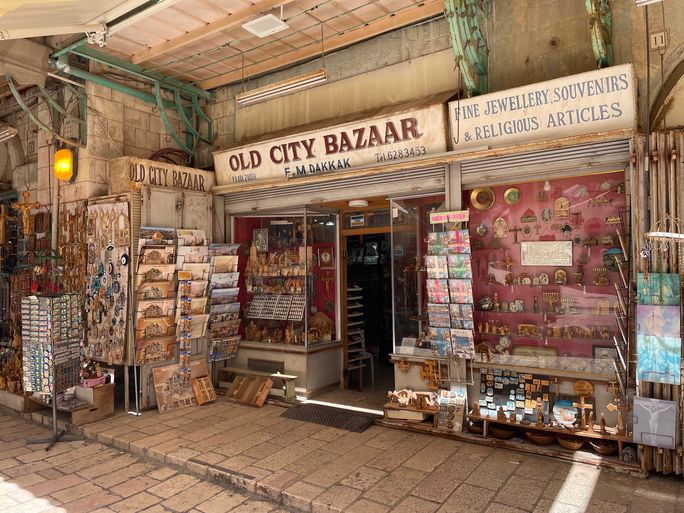
A shop in Jerusalem’s Old City. (Photo Credit: Bruce Parkinson)
On April 1, TravelPulse Canada returned to the Holy Land on a trip organized by the Israel Ministry of Tourism. The goal was to take in the current status of tourism in the country and to seek optimism and hope for a better future. Among friends and family, it wasn’t a popular decision, with some noting the date of the trip and suggesting I was a fool for travelling at this time.
Many travel journalists around the world turned down the offer to visit, either fearing for their safety or wary of backlash for writing about Israel, which has suffered blows to its international image for the ferocity of its response to the October 7 attack.
Six months after that terrible day, we found a different Israel from the one we visited in 2023. In Jerusalem and Tel Aviv, life goes on, but it’s not the same. The absence of tourists is sorely felt, and our group of 20 from around the world stood out in places normally thronged by religious pilgrims and secular sightseers.
There were no tanks on the streets or warplanes flying overhead, and there are always young soldiers everywhere you go in Israel, so it really didn’t feel like life during wartime. In Tel Aviv, bars and coffee shops were filled with young people doing their best to live normally. But reminders of the conflict are everywhere, from ubiquitous posters remembering the hostages still in captivity to street art and protest signs demanding a path to peace.
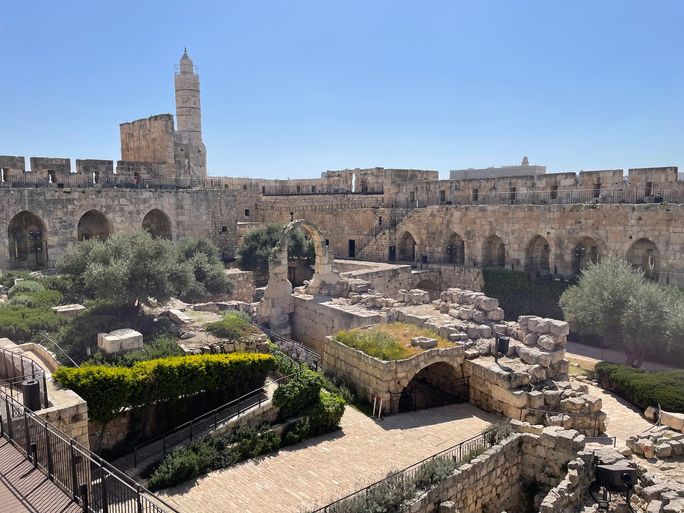
After a $50 million renovation, the Tower of David Jerusalem Museum explain’s the site.s 2,800 years of history with high-tech assistance. (Photo Credit: Bruce Parkinson)
For the human species, peace in the Middle East is the only path forward – if we can’t make it there, we can’t make it anywhere. For those of us who work in travel and tourism, it’s essential to believe that the industry has the potential to break down barriers between people and reveal our shared humanity. We have to cling to hope, it’s in our tourism DNA.
That’s a belief shared by Gal Hana, Consul and Senior Director of Sales and Business Development at the Israel Ministry of Tourism in Canada.
“In Israel, amidst the ongoing challenges, tourism stands as a beacon of hope,” Hana says.
“Despite recent turmoil, it remains a resilient industry, showcasing the nation’s unwavering spirit. Israel’s rich history and significance in the Holy Land make it a compelling destination for tourists worldwide. From ancient sites to modern marvels, the country offers a unique blend of culture and heritage.”
TravelPulse Canada was the only Canadian representative on a truly international media trip that included journalists from the U.S., India, the Philippines, France, Germany, Sweden, Italy, Spain and Austria.
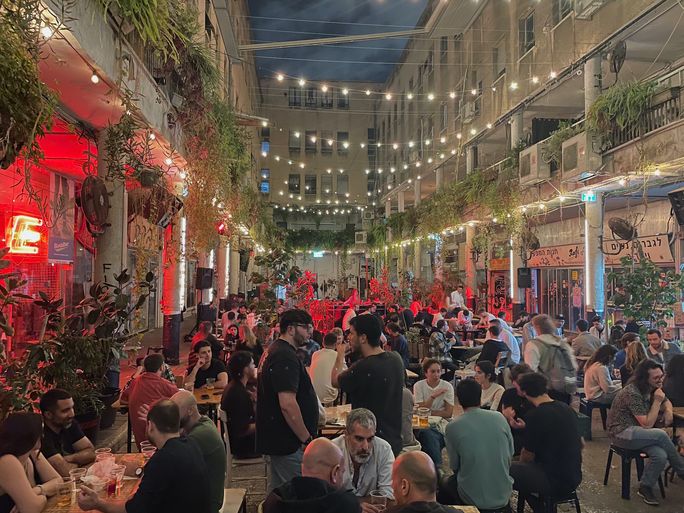
After six months of war, life goes on at nightclubs in Tel Aviv. (Photo Credit: Bruce Parkinson)
Over a packed week, we visited key attractions in Jerusalem, Tel Aviv and the Dead Sea region. We stayed at the luxurious Orient Hotel in Jerusalem and the design-forward, boutique Alberto Hotel in Tel Aviv. We toured ancient sites and modern nightclubs, floated in salt-saturated water and enjoyed a sound and light show in a sprawling cave where many of the stones that built the Old City of Jerusalem were quarried in the time of King Solomon.
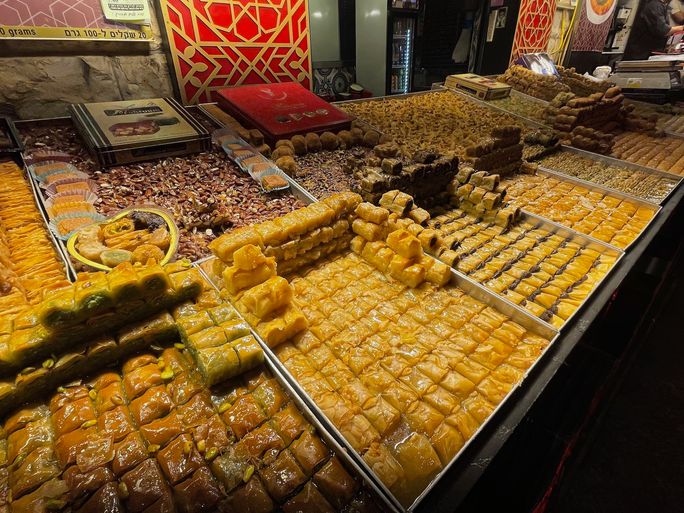
An amazing display of sweet treats at the Mahane Yehuda market in Jerusalem. (Photo Credit: Bruce Parkinson)
We witnessed the fervour of pilgrims at the Church of the Holy Sepulchre, and learned about the vibrant LGBT scene in Tel Aviv. We sampled the bounty of “the land of milk and honey” at every meal, and marvelled at how museums and other tourist sites are using state-of-the-art, Israel-developed technology to better tell their story.
On my third visit to the country, Israel remains for me a vibrant, maddening, inspiring, incomprehensible, beautiful, painful place. It represents the best of us, and the worst. It’s a microcosm of the human condition, and while I’m not religious, I believe it’s a place where we will all be judged for our capacity to find a way to live together in tolerance and peace.
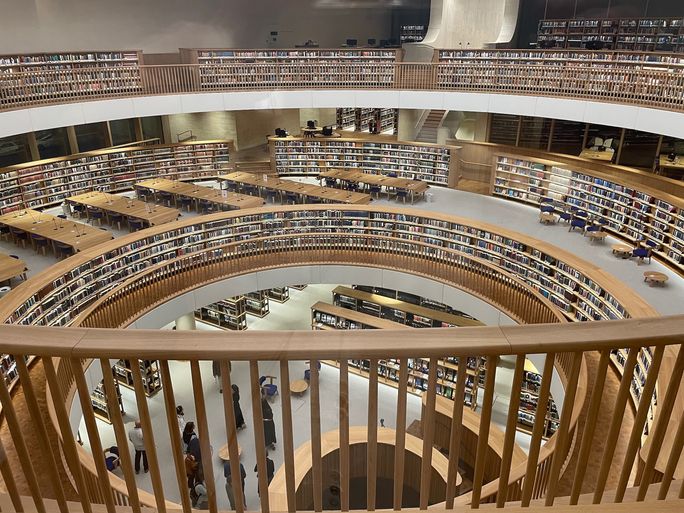
We visited the beautiful new National Library in Jerusalem, home to 4.5 million books.
There are so many things to love about Israel. The nation’s founders made education, art and culture fundamental to society. Israelis have made the desert bloom and are at the forefront of science and technology. Jerusalem is a city of incomparable beauty and immeasurable passion. Tel Aviv is a bastion of tolerance, youth and living for the moment. For thoughtful tourists, Israel is a deeply rewarding destination, even at this time of peril.
No one knows what the future holds for this nation embroiled in seemingly intractable, unending conflict. But I hope to return again one day to a place where Jews can live without fear of their neighbours and Palestinians can have the opportunity to thrive. And to a place where tourists can visit to learn from the triumphs and failures of our ancestors.
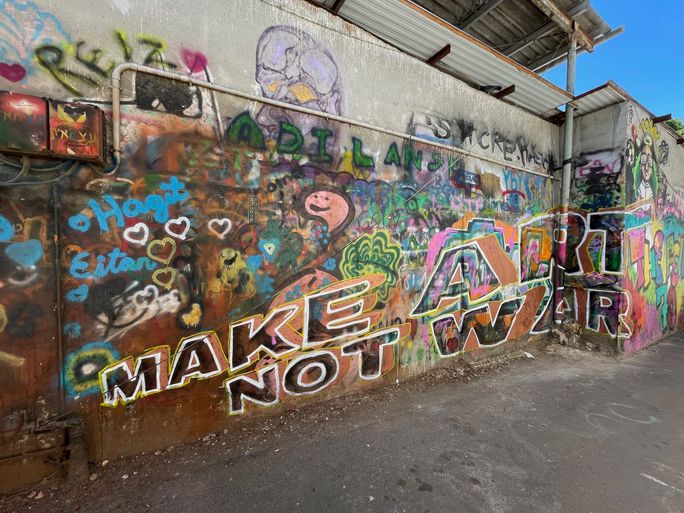
The streets of Tel Aviv are packed with street art and graffiti. (Photo Credit: Bruce Parkinson)
There are so many obstacles in the way and so many conflicting interests at play, it’s easy to abandon hope for Israel and the Middle East. But failure is not an option if the human experiment is to survive. As a man I respect once said: “You may say I’m a dreamer, but I’m not the only one. I hope someday you’ll join us, and the world can live as one.”
Stay tuned for more coverage of TravelPulse Canada’s Israel visit in the days to come.